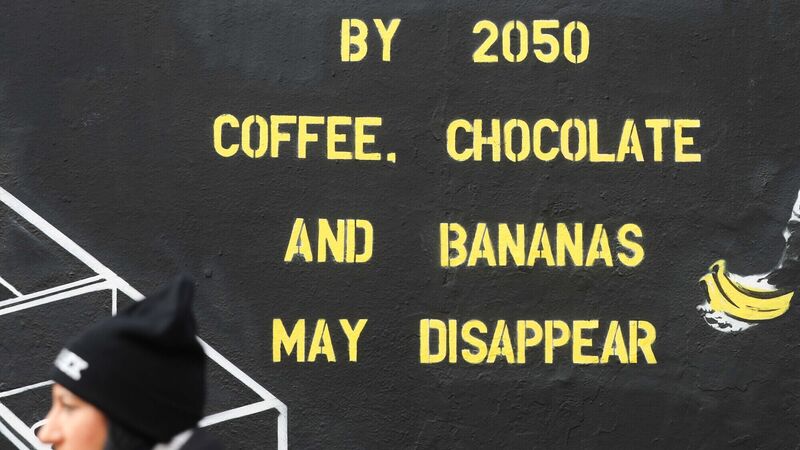Climate change has been damaging coffee-growing regions for past 40 years

The stark warning on a Fairtrade mural on Busy Feet & Coco Café on William St, Dublin. Climate change may render these basic supplies expensive treats within the next 30 years. Picture: Leah Farrell/RollingNews.ie
Climate change has been damaging coffee-growing regions for at least the last 40 years and this will only get worse.
Bolstering claims by Fairtrade Ireland this month that by 2050 coffee could be a precious commodity only for the wealthy, an independent study found that the hazards and extreme events of climate change increased in 12 regions between 1980 and 2020.
CLIMATE & SUSTAINABILITY HUB













